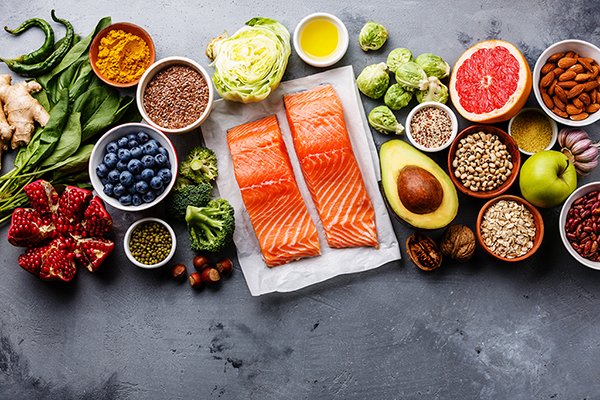
After months spent inside streaming Netflix and dreaming of the outdoors, it’s finally time to (almost) get back to life as we knew it. With the vaccine roll out, regular antigen tests and the promise of a summer spent with friends and family, health might be the last thing on your mind. But boosting your health can mean catching up on all of the things you have missed and being able to enjoy them all the more.
Staying fit and healthy has never been easier and getting back to basics with how and what you consume is the simplest way to boost your health. Here are six key nutrition tips for protecting your health this summer.
Eat your veggies
Now, we all know that you’re supposed to get five a day, but many people still don’t hit the mark in this area. To be considered a ‘portion’ of fruit or veg, it needs to be at least 80g. This might seem steep but adding a portion of fruit or veg to each of your meals means you’re already hitting three. And it’s not just eating your greens that helps, you can also drink them. Though doctors recommend moderation in the amount of fruit juices you drink per day, you can drink up to 150ml of fruit or vegetable juices and smoothies a day, counting as another portion to tick off the list.
Carbs are good for you
Starchy carbs such as potatoes, rice and cereals are brilliant sources of energy and fibre to add into your daily life. It is recommended that you eat a starchy, high fibre food with every meal as they are the main source of a range of nutrients needed by our bodies. Eating wholegrain sources of these foods is most recommended.
Reduce trans fat intake
Eating a diet high in saturated fats was once deemed to be a big health no-no. While thoughts on the use of butter, lard and fatty meats are changing at the moment (with the scientific community recalibrating their views on fats in general), one thing is for sure: trans fats aren’t great. Watch out for industrial food products containing fatty acids as these are linked with heart disease..
Eat less sugar
Cutting back on sweets and packaged foods containing high levels of sugar reduces the risks of obesity, type 2 diabetes and tooth decay. There is a difference between the natural sugars found in fruits and milk and those that are added to food, and it is the added kind that you need to be wary of. While it varies from person to person, it is recommended that men should not be eating more than 150 calories of added sugar per day and women only 100 calories.
Reduce salt consumption
Adults should consume no more than 6g of salt per day which is equivalent to around a teaspoon. A high salt diet can lead to high blood pressure, making heart disease and strokes more likely. Avoid foods with high levels of salt by checking the food labels.
Drink more water
You should be drinking 6 – 8 cups of water a day. If you’re finding this difficult, or you don’t like the taste of plain water, other options for healthy fluid intake are sparkling water, fruit teas and plain tea (without added sugar). Fluid intake is incredibly important as it performs a number of functions to keep the body healthy, including energising muscles, maintaining normal bowel function, aiding the kidneys and keeping skin healthy.
Following these few tips should ensure that you maintain a healthy and balanced diet, allowing you to catch up on all the fun you have missed during the past year in lockdown, and with rapid tests like the Healgen Antigen test, getting back to life is made even simpler.